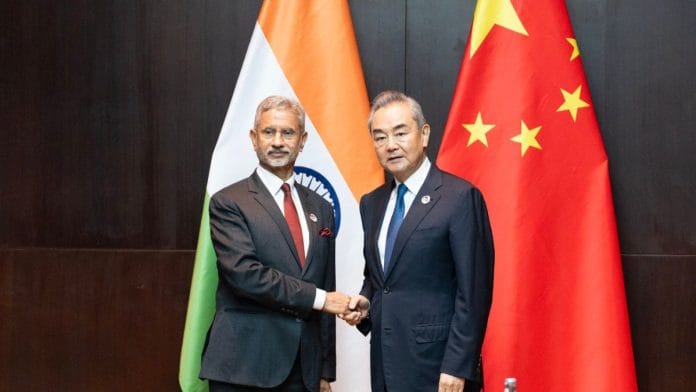Recent exchanges between Indian and Chinese officials have sparked a perceptible shift in the Chinese strategic community and media discourse regarding India-China relations. The accusatory rhetoric has somewhat subsided, signalling a belief that relations between the two countries may be improving. Chinese analysts are closely scrutinising statements from India’s Ministry of External Affairs and foreign minister S Jaishankar, interpreting them as signals that New Delhi is now aiming to attract Chinese investments and acknowledging the need for a more cooperative relationship with China.
Zhang Jiadong, director of Fudan University’s Center for South Asian Studies, recognises that while the improvement in relations has come later than expected, it is a significant development driven by mutual necessity. Similarly, Qian Feng, research director at Tsinghua University’s National Institute of Strategic Studies, notes positive progress in communication and the continuation of negotiations on border issues.
Despite these developments and open channels of communication, relations remain far from normal. Since the 2020 Galwan clashes, there has been no high-level meeting between Indian Prime Minister Narendra Modi and Chinese President Xi Jinping. These differences have profoundly affected bilateral relations and shifted public perception of China within India. This change in sentiment extends to China as well, where discourse increasingly focuses on Jaishankar. He is often depicted in Mandarin-language media and social media platforms as an anti-China elite and a key architect of India’s assertive stance toward China.
The latest trigger for this evolving narrative was Jaishankar’s address at the Economic Times World Leaders Forum, where he highlighted that India faces a distinct ‘China problem’ that extends beyond global concerns about China.
For China, Jaishankar is a problem
A recent article in the Global Times by one Wang Daming, whose English version has since been deleted, accused Jaishankar of being a major impediment to improving India-China relations. This critical view has been widely echoed across Chinese media platforms, which portray Jaishankar as pro-United States and blame him for India’s more confrontational stance toward China.
Commentaries on platforms like Baidu reinforce this narrative. One commentator suggested that although there have been recent signs of improvement in India-China relations, Jaishankar remains reluctant to acknowledge this progress and appears increasingly anxious about India’s stance. The commentator argued that under Jaishankar’s tenure, India has strengthened its ties with the US while its relationships with China and Russia have weakened. Another commentary pointed out that Jaishankar’s tenure has also seen India rejoin the Quad, withdraw from the Regional Comprehensive Economic Partnership, actively obstruct the Shanghai Cooperation Organisation (SCO), and miss key BRICS and SCO meetings to evade direct engagement with China.
In Chinese discourse, there is a clear dichotomy on India’s stance toward China. One perspective believes that some in India want to strengthen cooperation with China as it aligns with their long-term interests. On the other hand, others, including Jaishankar, are concerned that this could undermine India-US relations and damage India’s international standing.
Also read: China isn’t mocking India as usual. It’s praising Modi’s Russia-West balancing act instead
China misreads India
This fixation on Jaishankar in Chinese discourse as the primary obstacle to improved relations reveals a fundamental misunderstanding of India. By personalising the issue and blaming India entirely for the differences, the core problem is overlooked: the unresolved border dispute and China’s reluctance to address it. China has successfully resolved border disputes with 12 other countries, indicating that a resolution with India should be possible if Beijing genuinely seeks one.
The crux of the issue is not merely Jaishankar’s stance but China’s reluctance to engage with India on equal footing.
China’s strategic miscalculation stems from viewing India through a narrow lens that fails to account for broader geopolitical shifts and India’s evolving foreign policy priorities. Transforming a friendly country into an adversary has been a significant error on China’s part. Dismissing India’s concerns or downplaying the border issue will only exacerbate the rift.
The first step toward normalisation involves China understanding and addressing India’s concerns. China has often underestimated India’s agency and growing influence, evidenced by its role as a Quad member and a key player in the Indo-Pacific region. India’s actions are driven by its strategic priorities, not merely as a pawn in a US-led anti-China coalition. For lasting peace, China must recognise and respect India’s strategic autonomy and multi-alignment.
Sana Hashmi is fellow at Taiwan-Asia Exchange Foundation. She tweets @sanahashmi1. Views are personal.
(Edited by Aamaan Alam Khan)






